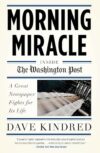
£15.95
Morning Miracle: Inside The Washington Post By Dave Kindred Price comparison
Morning Miracle: Inside The Washington Post By Dave Kindred Price History
Morning Miracle: Inside The Washington Post By Dave Kindred Description
Morning Miracle: Inside The Washington Post by Dave Kindred – A Must-Read for Journalism Enthusiasts
Discover the fascinating world behind one of America’s most iconic newspapers with Morning Miracle: Inside The Washington Post by Dave Kindred. This compelling book offers an in-depth look at the inner workings of the Washington Post, capturing the dedication and passion that fuel its journalism. If you’re searching for the best price or looking for insightful reviews, you’ve come to the right place. Let’s explore the captivating features and details of this remarkable book.
Key Features of Morning Miracle
- Authoritative Insights: Authored by Dave Kindred, a seasoned journalist with over 40 years in the field, this book brings credible perspectives on the evolution of journalism.
- Engaging Narratives: With 288 pages of captivating storytelling, Kindred offers readers an intimate glimpse into the challenges and triumphs of newspaper work.
- Reprint Edition: Released by Knopf Doubleday Publishing Group on August 9, 2011, the paperback edition allows for easy reading and portability.
- Compact Size: Measuring 5.19 x 0.65 x 8 inches and weighing just 9.8 ounces, it’s perfect for on-the-go reading.
- ISBN Information: The book can easily be identified by its ISBN-10: 0767928148 and ISBN-13: 978-0767928144.
Benefits of Reading Morning Miracle
- Understanding Journalism: Gain insights into the daily hustle and decision-making processes at a leading news outlet.
- Behind-the-Scenes View: Kindred’s storytelling reveals the heart and soul behind journalism, perfect for aspiring writers and media professionals.
- Cultural Significance: Understanding the role of the Washington Post during pivotal moments in history enriches your comprehension of modern media.
Price Comparison Across Suppliers
When seeking Morning Miracle: Inside The Washington Post by Dave Kindred, price variations among different suppliers can be surprising. The book typically retails for around $15 to $20, but discounts can be found, especially during promotional events. Use our price comparison tools to find exclusive deals and ensure you get the best value for your purchase.
6-Month Price History Trends
Our 6-month price history chart reveals notable trends regarding the book’s pricing. Over the past months, the price has fluctuated between $14.99 and $19.99, indicating both sales promotions and standard pricing adjustments. This variability highlights that timing your purchase could lead to significant savings.
Customer Reviews: What Readers Are Saying
The reception of Morning Miracle is overwhelmingly positive, with readers praising the book’s insightful content and engaging writing style. Here’s a summary of what customers are saying:
- Positive Aspects: Many have highlighted Kindred’s ability to bring the world of journalism to life, celebrating the intimate portrayals of key figures from the Washington Post.
- Noted Drawbacks: A few reviews mention that at times the narrative can feel detailed to the point of overwhelming. However, this thoroughness is appreciated by those who crave in-depth knowledge.
Explore Unboxing and Review Videos
For those who want a deeper dive into the book, various YouTube review and unboxing videos are available that provide visual insights into its contents. These videos often showcase readers sharing their experiences, giving you a glimpse into why this book is a must-read for anyone passionate about journalism.
Why You Should Read This Book
Morning Miracle is not just a book; it’s a treasure trove of knowledge about journalism’s pivotal moments through the lens of the Washington Post. Whether you’re a student of journalism, a fan of media history, or simply someone who enjoys a good story, this book offers something for everyone. Its compact size and engaging content make it an excellent addition to your reading list.
Don’t miss out on your chance to enrich your understanding of journalism and media. Compare prices now!
Morning Miracle: Inside The Washington Post By Dave Kindred Specification
Specification: Morning Miracle: Inside The Washington Post By Dave Kindred
|
Morning Miracle: Inside The Washington Post By Dave Kindred Reviews (4)
4 reviews for Morning Miracle: Inside The Washington Post By Dave Kindred
Only logged in customers who have purchased this product may leave a review.

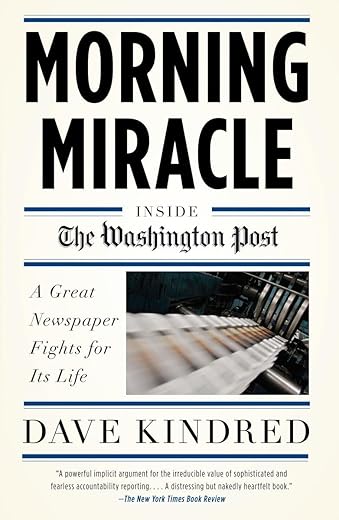




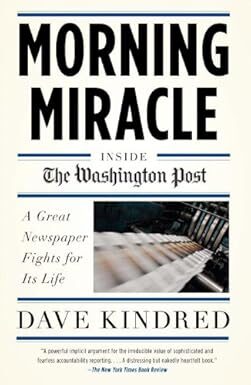
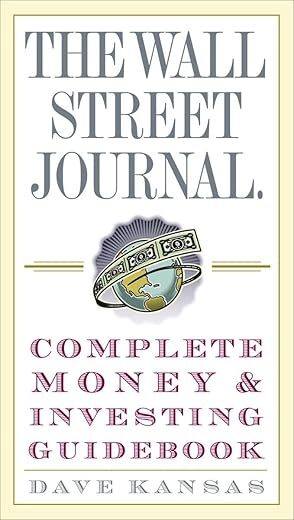
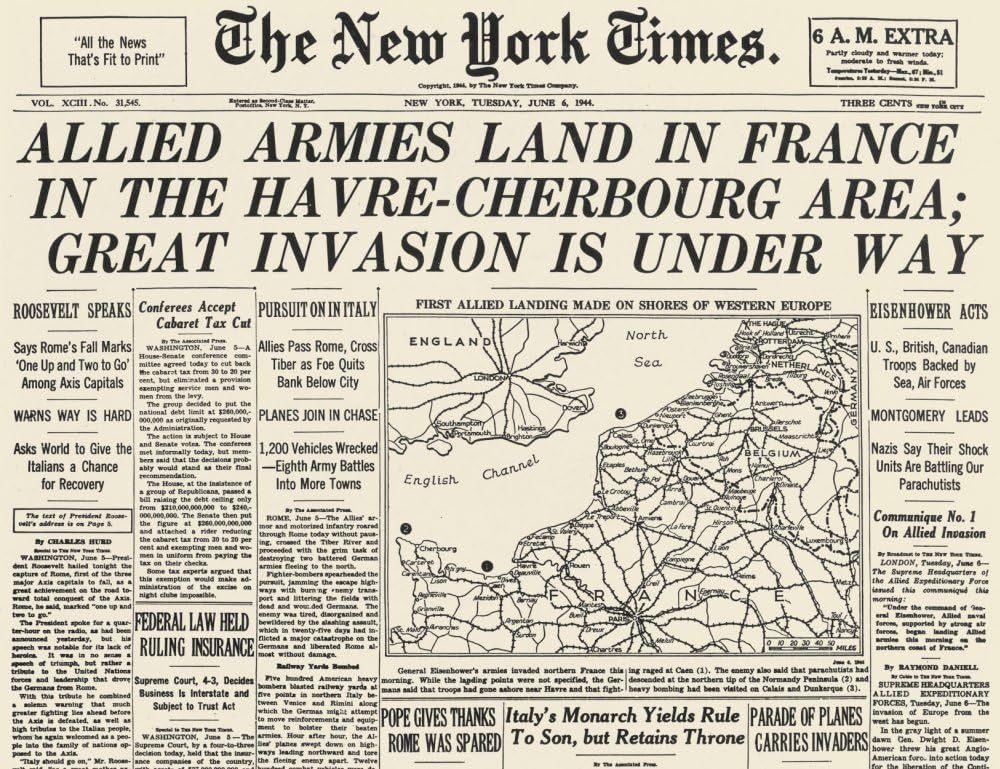
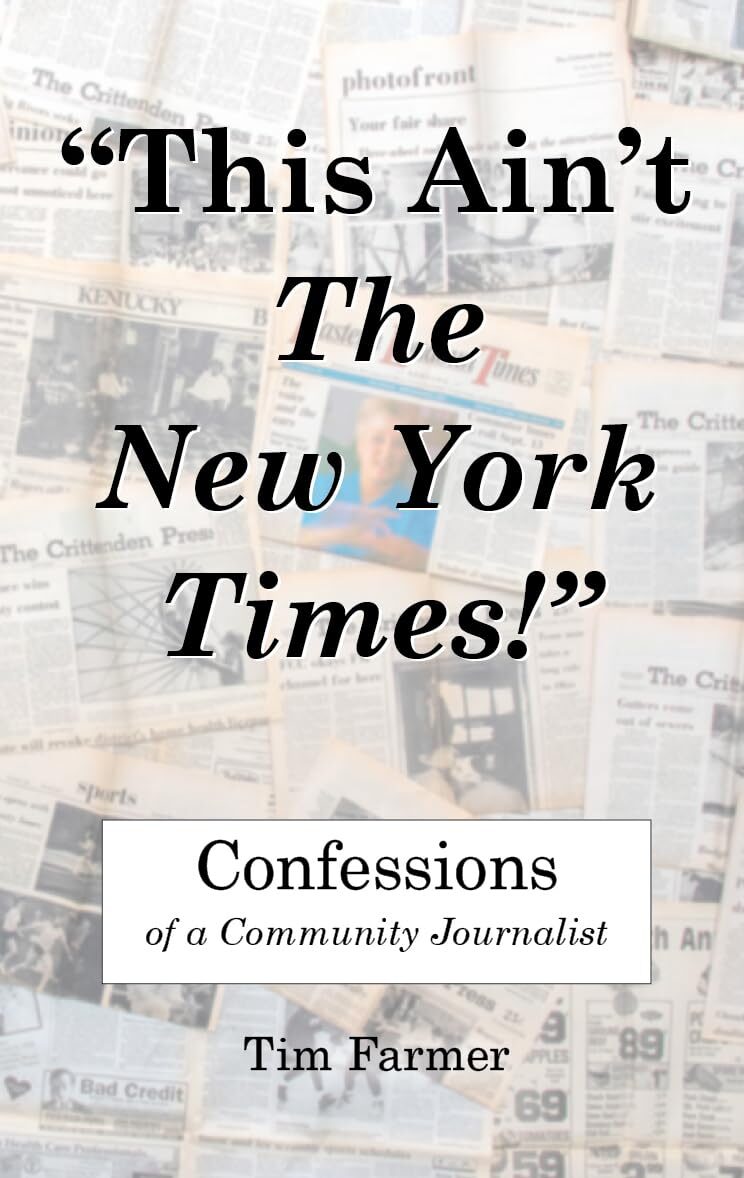
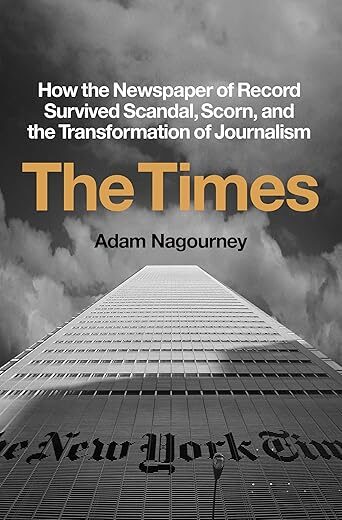
Patricia A. Wozny –
As someone who is a retireeof this wonderful newspaper, I can never read too many “Post” books. A great job of telling the srory of a great newspaper.
Stoupa –
AS a Washingtonian of many years and a lover of the Washington Post, I devoured this paean to my hometown paper. I picked it up yesterday and didn’t put it down until this afternoon. It’s a thorough telling of what made, and still makes, the Post such a great paper. In a Damon Runyonesque style, Kindred describes the many great talents, and great characters, that comprise the Post’s writers, in the past and up to the present moment.
Yesterday, Sulzberger, heir to the New York Times, said that he expects the paper will not have a print version “in the future.” I dread that day and hope, somehow, that the Washington Post will grace my doorstep (or, more specifically, my driveway) for many years to come.
Barry Sparks –
In 2008, San Francisco Chronicle managing editor Robert Rosenthal said the newspaper industry and the institution of journalism was caught up “in the greatest upheaval they had ever known.”
The internet had started the greatest revolution in communications since the Guttenberg press. From 2004-2008, 100,000 newspaper jobs were lost and 10 newspaper chains declared bankruptcy.
From 2007-2009, the Washington Post lost $359 million. It’s against this backdrop that Dave Kindred, a former Post sports columnist, wrote Morning Miracle, which he describes as a book “about a great newspaper doing its damnest to get out of the mess alive.”
Four years before the Internet became a widely used public tool, reporter Bob Kaiser issued a memo in 1992 to all the Post leaders that reflected the new-found belief that newspapers must join the electronics revolution immediately. It became known as the “boiling frog” memo.
In 1994, the Post’s circulation dropped for the first time in 40 years. The newspaper’s glory days were starting to end. The days of 700 reporters on staff, a $100 million budget and news bureaus around the world were about to become a thing of the past.
In June 1996, almost four years after the “boiling frog” memo, the Post launched […] The website was a high stakes gamble, one that required $200 million to gain profitability.
Steve Coll, one of the paper’s top editors, wrote in 1999 that the biggest challenge for reporters and editors “involves adapting our work to […] formats that emphasize speed, active interaction with readers and a new synthesis of words, pictures and sounds.” He termed the Post, as it existed, to be “an idealistic editor’s most extravagant imagination.” He warned that it would never last forever.
A pivotal point in the Post’s future came when publisher Donald Graham shot down the national global web strategy, preferring that his reporters think locally and the Post remain a local newspaper. That stopped the momentum of the Web movement, limited the Post’s ambition and caused Coll to resign.
Even though Kindred writes “When attention spans can be measured in nano seconds, a thoughtful piece was all but a relic,” he uses several articles and projects to illustrate the impact of the Post and its reporters. He focuses on the expose of soldiers’ neglect at Walter Reed Hospital, the Va. Tech shootings, coverage of the Iraq war and the election of Barack Obama as President.
By late 2008, the Washington Post’s circulation was its lowest since 1940 and print revenue continued to fall 10 times faster than online revenue rose.
Although the Washington Post and other newspapers will likely survive, it’s clear that their glory days are sadly over. If you have any interest in newspapers and the changing communication era, this is an excellent book to read.
olingerstories –
Dave Kindred’s THE MORNING MIRACLE doesn’t compare with Gay Talese’s THE KINGDOM AND THE POWER, and isn’t even the best book on the Washington Post (Katharine Graham’s PERSONAL HISTORY), but it is a first-rate account of a venerable institution struggling to survive in the 21st century. The heroes are Post writers Dana Priest, Annie Hull, Anthony Shadid, Sally Jenkins and Gene Weingarten, individuals who see journalism more as a calling than a career. Walter Pincus is the old truth-telling prophet. Len Downie is revered as the near perfect editor. Ben Bradlee is almost made to walk on water. And yet, despite such talent, the Post is losing money on newsprint and the direction forward is murky, so much so that one Post writer suggests Kindred’s title should be DYING WITH DIGNITY.
As Kindred focuses the story on the period of time between 2005-2008, the staff knows that beloved publisher, Don Graham, will do anything to keep the print side of the paper afloat. But, in seeing his personal (a divorce settlement) and professional (age) life slipping away, he believes that the only hope is to turn to youth for leadership, particularly niece Katharine Weymouth. Understanding the business side of the Post, and more aware of the importance of its online future, Weymouth is the logical successor. But, Kindred is not placated with the choice. He finds her oblivious to the decline of the quality of the Post as the staff shrinks through forced buyouts. And, worse still, he knows that she has no ear for words, no sense of the history of print. She quotes Metro Columnist Marc Fisher as putting forth the Post’s objective in a tidy fashion when he writes it is “to speak truth to power, to comfort the afflicted and afflict the comfortable.” Kindred’s scorching reaction, “The words were written by Finley Peter Dunne almost a century ago. Old news to people who know newspapers.” But, such tough talk belies the reality that without Weymouth’s bottom line agressiveness, the Post might fold altogether like the Seatlle Post-Intelligencer or the Rocky Mountain News in Denver. Kindred grudgingly knows that the Post must adapt or die.
Weingarten turns out to be Kindred’s sage. He pinpoints the critical difference between reading a newspaper and something online. With a newspaper, you never read what you think you will. You see different headlines and pictures and end up reading somethng you otherwise would have bypassed. Online, you pick out what you read. You confirm what you already know and you never expand.
Weingarten also provides the most laugh out loud moments in the book, such as when making a graduation speech to journalism majors and telling them that the business is changing so radically that it is hard to tell what future journalists will look like. Weingarten exclaims, “I mean literally. For all we know, they might have gills and three buttocks. That’s how fast things are changing. But rest assured that, however dizzying the rate of change, when what’s at stake is the sacred art of truth-telling, there is always one constant. One thing that will always be the same: Your editor is going to be an idiot.”
In the end, Kindred concludes that the Post will no longer be the paper of excellence that the Grahams, Bradlee and Downie created anymore than today’s world can be the same as the world of a generation past. But, he does take comfort that there will always be journalists who love to get the story right and won’t rest until they do.
For those who love words, and print, and might even still walk out into their driveway every morning to pick up the Post, this is a great book to read.